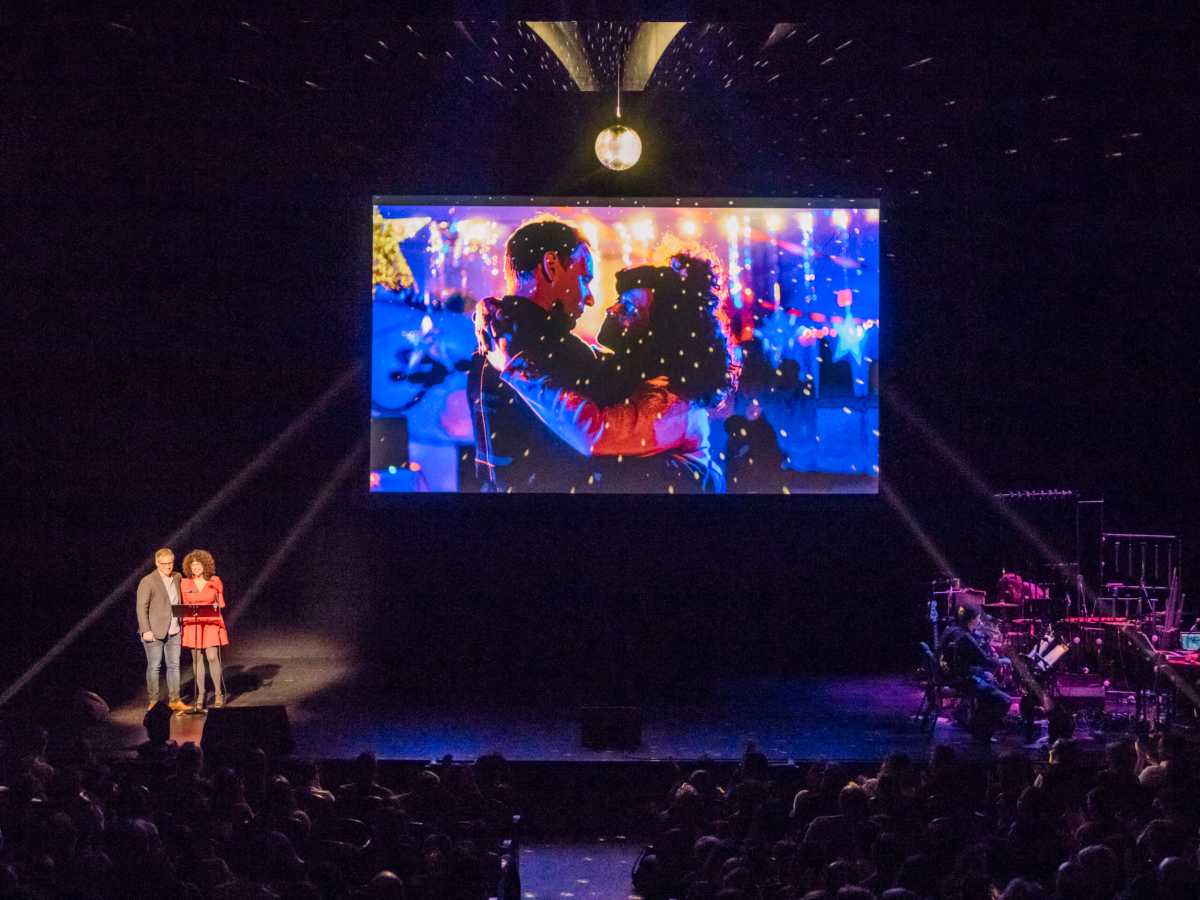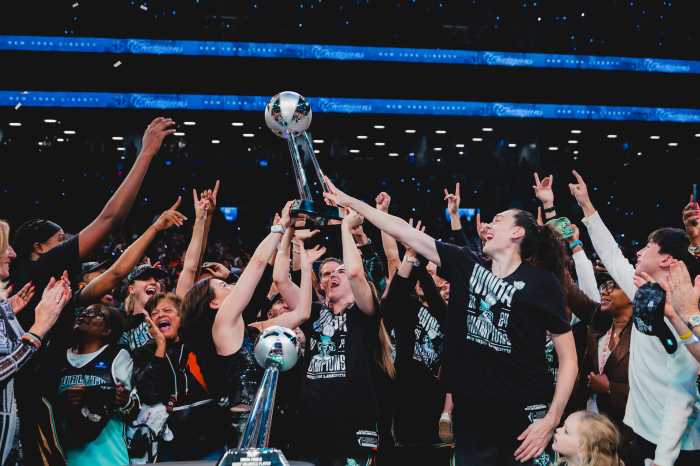For Brooklynites who prefer to spend their evenings with the week’s newest long-form magazine feature or podcast episode, Pop-Up Magazine is bringing the perfect night out back to Brooklyn for one night only at the BAM Howard Gilman Opera House.
Founded in San Francisco in 2009 and touring the country since 2015, Pop-Up bills itself as a “live magazine,” presenting a selection of in-person, multimedia stories with live speakers, videos, photography, and live musical accompaniment. At Pop-Up, writers and creatives present stories they’ve never told before – and may not again, at least not in exactly the same way, since no video or audio recording is allowed at their live events.
The 2021 issue is Pop-Up’s first live event since February 2020 — last summer, they brought stories and art to the streets of Brooklyn, San Francisco, and Los Angeles, ran online-only issues, and even shipped out physical copies of “Issue in a Box,” but none quite captured the experience of watching a story unfold in-person.
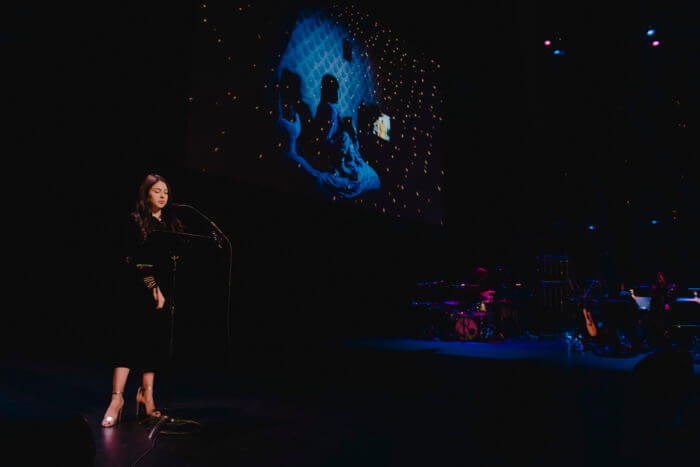
In Brooklyn, the magazine will feature writers Chanel Miller, Cord Jefferson and Shima Oliaee. It will also be the first time Oliaee, a Brooklynite, writer, and radio producer, is taking one of her stories live — a piece she came up with while working on her next podcast series, tentatively titled “Pink Card.”
“My mom was a freshman in college when the ‘79 revolution happened in Iran,” Oliaee said. “She actually left Iran the same day as the Shah. My mom was always crazy about soccer, and so the story kind of looks at three generations of women in Iran who absolutely love soccer, but it’s really about the game behind the game.”
Since 1979, women have been banned from attending soccer games in Iran. There have been exceptions, through the years. In 2019, a few thousand women were allowed to watch a qualifying match when FIFA put immense pressure on Iranian authorities.
Despite the ban, and despite the threat of harsh punishments from the government, Iranian women not only protest their exclusion — they find ways to sneak into the stadium to watch the game they love.
Oliaee is no stranger to making immersive and engaging work — she produced the award-winning series Dolly Parton’s America and co-created The Vanishing of Harry Pace, both for Radiolab, and produced the Stitcher series UnErased —but telling a story at Pop-Up allows her to move away from the confines of sound.
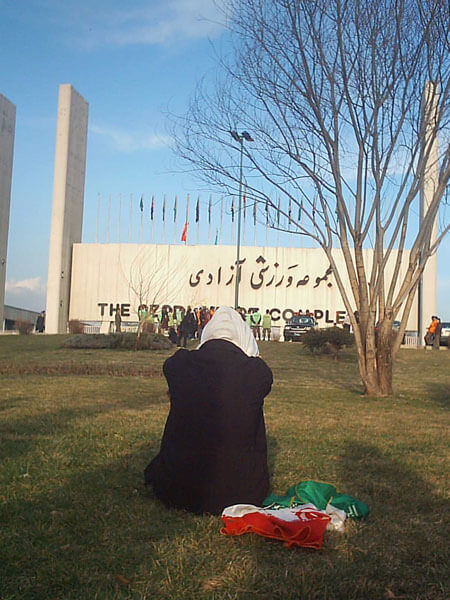
“I’m really appreciative to be doing it at Pop-Up,” Oliaee said. “Because when you see the video of one of the girls subverting censorship, and how she does it, and how she sneaks in…it’s wild to see. I think you see the depth of what she’s fighting.”
A friend who was working on the series with her said some of Oliaee’s stories sound like they’re from another world.
“My heart’s intent was I wanted to reframe this country that we think we know, we have a very western version of Iran,” she said. “It’s usually like, old men in beards that all have really bad eyebrows. I’m reframing it as women with amazing eyebrows who are just f–king with gender, who are f–king with public spaces, who are f–king with sports.”
“It starts as almost like a sport, and they’ve made it poetic, how to out-trick the government.”
The piece, and the larger series it spawned from, were inspired in part by an experience she had working on Dolly Parton’s America. While riding around in the American South, she thought about her Iranian grandmothers and the Middle East — and that the South, like the Middle East, is a place vilified and stereotyped. Those comparisons came out in an episode called “Neon Moss,” but she wasn’t done thinking about it.
“If you know a lot of Middle Eastern women, or Persian women, they are not oppressed, they are scary, including my grandma,” Oliaee said. “My grandma was very intimidating. That was another kind of driving force. I just wanted to show how badass they are, but also, wow, these badass women have to fight for every little inch.”
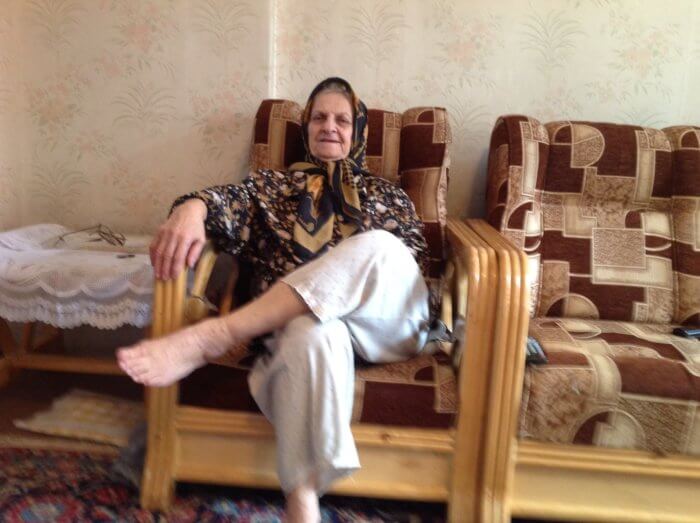
It’s also, Oliaee said jokingly, a “revenge” piece for a trip her parents took to Iran with her older brother during the Green Revolution in 2009. It was the first time they returned to the country since they had left in the 70s, and she wanted badly to join them — but her parents, worried about her safety, chose not to take her along.
“This is kind of my love letter to wanting to go,” she said. “I don’t know, after the series comes out, if I’ll ever be able to go again. Most of the girls I’m talking to in the country, they cannot give me their real names. It’s a death threat.”
It’s also a story for cousins who served as a “touchstone for where I came from,” when she was a child, who have since left Iran and cannot return.
The woman who features most heavily in the visuals Oliaee will be using at Pop-Up is already in exile, she said, which is why she can be so prominent.
“If you watch the show at BAM, you will know exactly which girl I’m talking about, because your jaw will drop when you see what she does because she loves soccer,” she said. “I have video that no one has seen from inside the soccer stadiums, I have new footage that I got for my series that is visual of these girls, and that shows them contorting their lives and themselves in order to be able to watch soccer.”

Oliaee’s mom — who features in the first few minutes of the piece, and who Oliaee described as “the first badass woman I met” — used to ask her why she wanted to visit Iran, where she would be “half a person,” she said. She wants, in part, to show that they are not half a person — that she considers them world leaders.
“What the Iranian girls are doing is they’re using the international platform of that soccer stadium to transmit the true message out about who they are and what is going on,” she said. “That is their genius. That’s what they’re doing. They’re telling the truth about men, and they’re telling the truth about themselves from a place that has international eyes on them. It’s so ingenious.”
See Shima’s story and others at Pop-Up’s 2021 Issue on Nov. 16 at the BAM Howard Gilman Opera House. Find tickets here.


